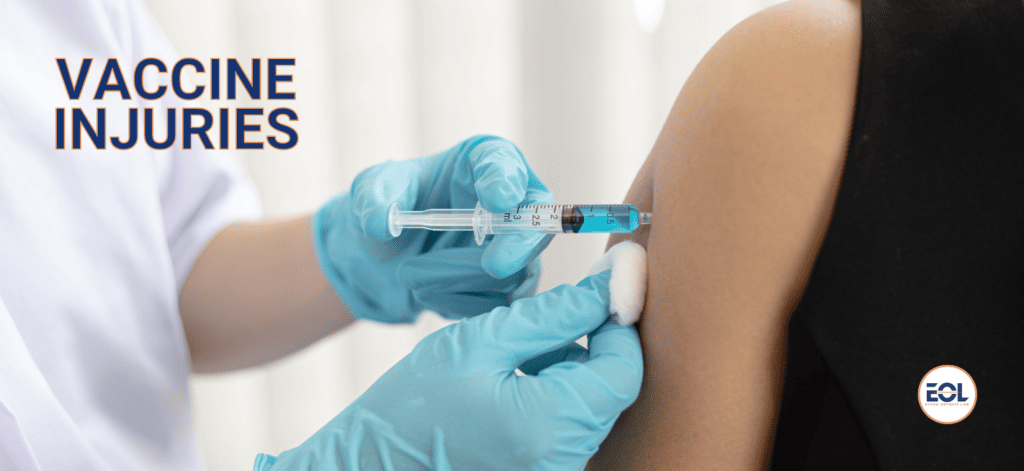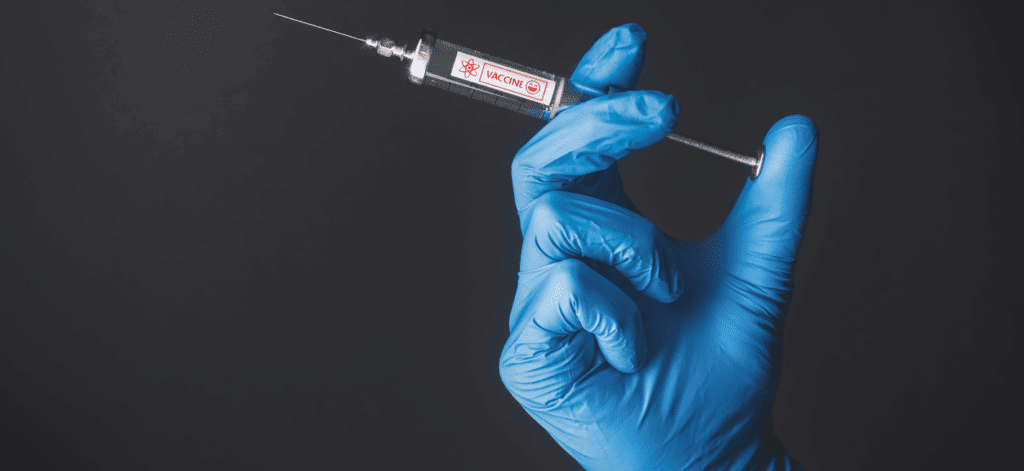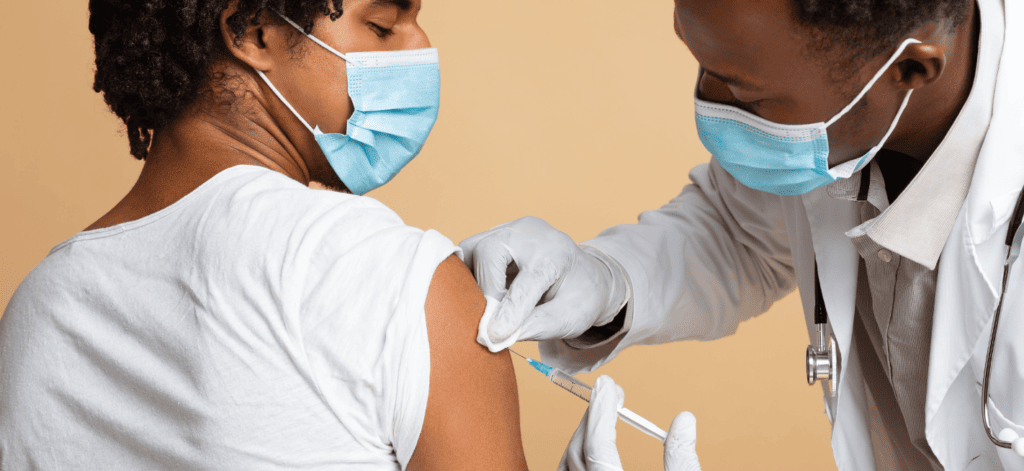Vaccine Lawsuit | National Vaccine Injury Compensation Program (VICP)
Vaccines, a crucial medical advancement, have safeguarded countless lives against various diseases. Yet, despite their benefits, some may face adverse reactions or injuries. The National Vaccine Injury Compensation Program (VICP) compensates eligible vaccine-injured individuals. Here, Ethen Ostroff Law explores the VICP, vaccine injury claims, vaccine lawsuit, and how our firm can advocate for your rights to ensure compensation.
Vaccines and Public Health
Vaccines, vital for immunity, help your body fight diseases. They can be made from various substances to stimulate your immune response. When you get vaccinated, your immune system produces antibodies to combat the actual disease if you’re exposed in the future.
While vaccines are lauded for reducing serious diseases, like any medical intervention, they can have side effects. From mild reactions to rare but severe outcomes, vaccine injuries vary. Most reactions are mild and temporary; some are severe and long-lasting.
According to the Centers for Disease Control and Prevention, depending on the vaccine, serious allergic reactions occur in about one in a million doses, and seizures occur in 1 in 14,000 to 1 in 50,000 doses. Other serious injuries, like brain damage or Guillain-Barré syndrome, are even more uncommon.
Vaccine Side Effects
Vaccines, crucial for public health, shield us from various diseases. While generally safe, they can have side effects.
Common side effects include:
- Diarrhea
- Fever
- Headache
- Fatigue
- Fussiness, crying, decreased appetite or restlessness in infants
- Muscle or joint aches
- Nausea
- Pain
- Redness
- Swelling at the injection site
- Vomiting
Serious side effects include:
- Autism (no scientific evidence)
- Guillain-Barré Syndrome (GBS)
- Inflammatory bowel disease (no scientific evidence)
- Myocarditis
- Pediatric asthma (no scientific evidence)
- Pericarditis
- Seizures
- Severe allergic reactions (anaphylaxis)
- Sudden infant death syndrome (SIDS) (no scientific evidence)
- Thrombosis with thrombocytopenia syndrome (TTS)
- Vaccine-induced immune thrombocytopenia and thrombosis (VITT)
Discussing concerns with a healthcare provider is crucial, as individual responses vary. Despite potential side effects, it’s important to recognize that the benefits of vaccination far surpass the risks, establishing vaccines as among the safest medical products available.

Duration of Vaccine Side Effects
After getting a vaccine, the duration of side effects varies. Common ones typically fade in a few days, usually lasting 24 to 48 hours. Yet, for some, side effects may linger for a week. In case of emergency symptoms after vaccination, seek immediate medical attention. For concerns, talking to your healthcare provider is essential.
Home Care for Vaccine Side Effects
Consider these home remedies to ease vaccine side effects:
- Apply a cool, wet cloth to the injection site to ease pain and swelling.
- Clear toxins with liver herbs or absorbents.
- Dress lightly and avoid overheating if you have a fever.
- Drink clear fluids to combat nausea, vomiting, or diarrhea.
- Drink lots of fluids to stay hydrated.
- Eat immune-boosting foods like broccoli and ginger.
- Explore homeopathic remedies like Thuja Occidentalis.
- Get a warm bath or heating pad to ease muscle or joint aches.
- Get plenty of rest.
- Keep moving your arm to reduce soreness at the injection site.
- Limit alcohol intake to avoid vaccine-like symptoms.
- Relax in a dimly lit room if you have a headache.
- Support your immune system with vitamins and adaptogens.
- Take over-the-counter pain relievers if needed, post-vaccine.
- If emergency symptoms arise, seek medical attention.
Remember, these suggestions may vary. Consult your healthcare provider for personalized advice on vaccine side effects.
The National Vaccine Injury Compensation Program (VICP)
Established by the 1986 National Childhood Vaccine Injury Act, the VICP is a no-fault system offering compensation for those harmed by covered childhood vaccines. It financially assists individuals and families filing claims for vaccine injuries, providing an alternative to the usual legal process. The federal program’s aim is to ensure a steady vaccine supply, control costs, and create an accessible platform for those affected by specific vaccines.
The Health Resources & Services Administration (HRSA) and the Office of Special Masters at the U.S. Court of Federal Claims contribute to the VICP administration. HRSA manages the VICP, providing a no-fault option for resolving vaccine injury claims outside the traditional legal system. They review claims, making recommendations to the U.S. Department of Justice, representing the Secretary of Health and Human Services. The ‘vaccine court’ or the Office of Special Masters oversees the litigation of vaccine injury claims, deciding on compensation. Collaboratively, HRSA and the vaccine court ensure those harmed by specific vaccines receive compensation through the VICP.
Filing claims against vaccine manufacturers typically doesn’t happen in state or federal civil courts. Instead, it takes place in the U.S. Court of Federal Claims without a jury. The program, starting in 1988, offers compensation to those found injured by specific vaccines. Even without a formal finding, petitioners might receive compensation through a settlement. Eligible claimants can seek compensation for medical expenses, rehabilitation, pain and suffering, and lost earnings.
Vaccine Injury Table
The Vaccine Injury Table, crafted by the U.S. Department of Health and Human Services, is a guide listing vaccine, associated injuries, and the timeframe for symptoms’ onset. Updated regularly, it helps determine compensation eligibility under the VICP. This table specifies covered vaccines, eligible injuries, and expected symptom onset periods. In cases not on the table or outside the listed timeframe, the petitioner must demonstrate the vaccine’s role in causing the injury. The Vaccine Injury Table plays a crucial role in deciding compensation under the VICP, ensuring fairness and clarity in the process.
Vaccines Covered and Not Covered by the VICP
Here is a summary of the Vaccine Injury Table for claims filed on or after January 3, 2022, as listed on the HRSA’s website:
Covered vaccines and related injuries:
- Diphtheria, tetanus, pertussis (DTaP) vaccines: Anaphylaxis, encephalopathy, and shoulder injury related to vaccine administration (SIRVA)
- Haemophilus influenzae type b (Hib) vaccines: Anaphylaxis, encephalopathy, and SIRVA
- Hepatitis A vaccines: Anaphylaxis and SIRVA
- Hepatitis B vaccines: Anaphylaxis, Guillain-Barré Syndrome (GBS), and SIRVA
- Human papillomavirus (HPV) vaccines: Anaphylaxis, GBS, and SIRVA
- Influenza vaccines: Anaphylaxis, GBS, and SIRVA
- Measles, mumps, rubella (MMR) vaccines: Anaphylaxis, encephalopathy, and SIRVA
- Meningococcal vaccines: Anaphylaxis, GBS, and SIRVA
- Pneumococcal conjugate vaccines: Anaphylaxis, encephalopathy, and SIRVA
- Polio vaccines: Anaphylaxis, encephalopathy, and SIRVA
- Rotavirus vaccines: Intussusception and SIRVA
- Tetanus toxoid-containing vaccines: Anaphylaxis, encephalopathy, and SIRVA
- Varicella (chickenpox) vaccines: Anaphylaxis, encephalopathy, and SIRVA
Not covered vaccines and injuries:
- COVID-19 vaccines: Anaphylaxis, thrombosis with TTS, myocarditis, pericarditis, and VITT
- Injuries or conditions not caused by the vaccine
- Injuries or conditions not covered by the VICP
- Injuries or conditions not listed in the Vaccine Injury Table
For a complete list of vaccines and related injuries covered by the VICP, refer to the Vaccine Injury Table provided by HRSA.
What Is a SIRVA Lawsuit?
A SIRVA lawsuit involves individuals who believe they’ve experienced shoulder injuries due to vaccine administration. This legal action can be pursued in state or federal court, especially if affected individuals disagree with the VICP’s decision or seek additional damages. These lawsuits aim to compensate for medical expenses, lost wages, and pain resulting from the SIRVA injury.
The process of filing a SIRVA lawsuit includes:
- Consultation with a SIRVA attorney: Seek guidance from a specialized SIRVA lawyer who can assess your case.
- Gathering evidence: Collect medical records, injury details, and relevant communications with healthcare providers.
- Notifying the defendant: Your SIRVA lawyer drafts a complaint and files it with the court, naming the responsible parties.
- Discovery process: Both sides exchange information and evidence.
- Negotiation or trial: Attempt to settle the case or proceed to trial if necessary.
- Resolution: You may receive SIRVA compensation for damages if it is ruled in your favor.

Eligibility for Vaccine Injury Compensation
To qualify for vaccine compensation under the VICP, consider the following:
- The vaccine must be covered.
- The injury or condition must be on the Vaccine Injury Table.
- The first symptom must occur within a specific timeframe post-vaccination.
- The injury or condition should last over six months or lead to hospitalization and surgery.
- File a petition with the Office of Special Masters within the statute of limitations.
The VICP is a complex program, and eligibility for compensation can depend on many factors. It is recommended to consult a healthcare provider or a vaccine injury attorney for more information on the requirements for the VICP.
Filing a Vaccine Injury Claim
If you have suffered a vaccine injury, follow these steps to file a petition with the vaccine court:
- Check the Vaccine Injury Table for recognized injuries.
- For unlisted injuries, prove the vaccine caused harm.
- Submit a petition online or by mail.
- Include vaccine details, vaccination date, symptoms, and medical treatment.
- Provide medical records and supporting documents.
- A special master will be assigned to your case, reviewing your petition, and you may request more information.
- A hearing will determine compensation eligibility based on injury severity and economic losses.
- If you’re not satisfied with the decision, appeal to the U.S. Court of Federal Claims.
For detailed information about how to submit a petition, visit the U.S. Court of Federal Claims, Office of Special Masters.
Common Reasons for VICP Claim Denials
VICP claims may be denied for various reasons, including:
- Failure to establish a “severe” injury or illness.
- Failure to establish the timing of the first symptom, or “significant aggravation,” of injury.
- Failure to file a petition within the statute of limitations.
- Injury or condition not aligned with the time on the Vaccine Injury Table.
- Injury or condition not listed on the Vaccine Injury Table.
- Not meeting the technical requirements of the VICP.
- Not specifying the vaccine.
- Submitting insufficient evidence to support the claim.
- VICP does not cover the vaccine.
Appealing a Denied Vaccine Injury Claim
Remember, if your VICP claim is denied, you have the right to appeal. Here’s how you do it:
- Within 30 days of the decision, submit an appeal to the Court of Federal Claims.
- A judge will review the evidence from both parties.
- If the judge upholds the denial, you have the option to appeal to the Court of Appeals for the Federal Circuit.
- If the denial is upheld, you can take your case to the U.S. Supreme Court.
The appeals process for a denied VICP claim can be complex. Seek advice from one of Ethen Ostroff Law vaccine lawyers.

VICP Claim v. Vaccine Lawsuit
A vaccine injury claim under the VICP provides a no-fault alternative, offering a streamlined process for resolving claims. In contrast, a vaccine injury lawsuit is a legal action taken by an individual who alleges vaccine-related harm. Vaccine lawsuits are typically pursued in state or federal court if the petitioner disagrees with the VICP’s final judgment. Choosing the right path can be intricate. Seek guidance from a vaccine injury attorney at Ethen Ostroff Law for an informed approach.
Types of Compensation Awarded Under the VICP
Navigating vaccine injuries can be challenging, but the VICP aims to provide support. Explore the types of compensation it offers in three key categories:
- Lost wages: Covers actual and expected lost wages due to the vaccine injury.
- Medical expenses: Covers both past and future out-of-pocket medical costs, excluding insurance (except Medicaid).
- Pain and suffering: Awards for actual and anticipated emotional distress associated with the vaccine-related injuries or conditions, with a maximum limit of $250,000 under VICP.
Average Amount of Compensation Awarded Under the VICP
The typical compensation awarded under the VICP is approximately $450,000. Yet, the actual amount varies based on the severity of the injury and the economic losses endured. Consult with a healthcare provider or a vaccine lawyer specializing in injury claims for detailed insights into vaccine injury settlements.
Negotiated Settlements in VICP Petitions
VICP petitions often lead to negotiated settlements for various reasons:
- Minimizing risk for both parties.
- Reducing time and litigation costs.
- Swift resolution of petitions.
- When the Department of Health and Human Services acknowledges vaccine causation, eliminating the need for court proceedings.
- When evidence from both sides supports a settlement.
These considerations aim to streamline the process and provide a quicker resolution for all involved parties.
Ethen Ostroff Law for Your Vaccine Injury Claims/Lawsuit
Vaccines play a crucial role in disease prevention, but adverse reactions can occur. The VICP offers compensation for those affected. Navigating this process can be challenging, so having a vaccine injury attorney is crucial. At Ethen Ostroff Law, our dedicated team of vaccine lawyers understands the complexities of vaccine injury claims. We can assist you in filing claims, vaccine lawsuit, collecting medical records, and representing you throughout the process. What are you waiting for? Contact Ethen Ostroff Law now at 610-510-8883 ( by calling this number, you consent to receive SMS updates from Ethen Ostroff Law) or Submit Form to get free consultation.


